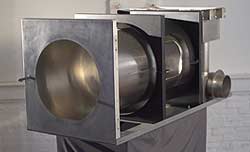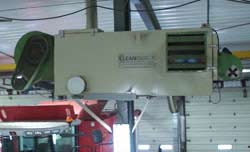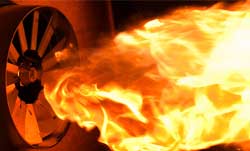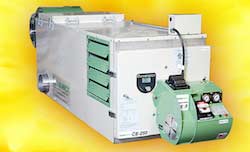What Makes Waste Oil Furnaces Environmentally Friendly?
While saving money is often the primary reason companies switch to waste oil heating, there’s another major advantage to making that change. Waste oil furnaces offer an environmentally-friendly way to produce energy.
What Makes Waste Oil Heating Eco-Friendly?
According to the National Oil Recyclers Association regarding waste oil, waste oil has nearly twice the energy value of coal and generates more energy than #2 fuel oil. Also, one gallon of waste oil has the same amount of energy as 18 kWh of electricity.
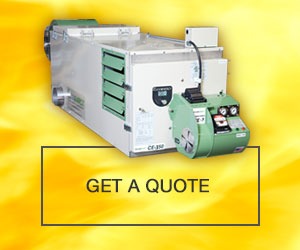 It ensures used petroleum products are disposed of properly without harming land and living creatures in the process. With a waste oil burner, you recycle your waste oil and turn it into free heat for your facility. By keeping waste oil on-site and burning it as heat, you reduce the risk of spills and contamination that could occur with other disposal methods. That’s not only important for environmental reasons; it also minimizes your risk of not complying with “cradle-to-grave” laws, which hold a business responsible for the disposal of hazardous material even if it has retained a contractor for disposal.
It ensures used petroleum products are disposed of properly without harming land and living creatures in the process. With a waste oil burner, you recycle your waste oil and turn it into free heat for your facility. By keeping waste oil on-site and burning it as heat, you reduce the risk of spills and contamination that could occur with other disposal methods. That’s not only important for environmental reasons; it also minimizes your risk of not complying with “cradle-to-grave” laws, which hold a business responsible for the disposal of hazardous material even if it has retained a contractor for disposal.
It reduces the demand on natural gas and fuel oil supplies. For every gallon of waste oil you burn, you save a gallon of oil or gasoline from entering the distribution chain.
At Clean Energy Heating Systems, we engineer our waste oil furnaces to meet all EPA regulations burn and waste oil ultra-efficiently. Today’s business landscape comes with strict directives, so it’s especially important to have the peace of mind that the disposal method of your used petroleum products complies with government regulations.
What Advantages Does Waste Oil Heating Have Over Other Eco-Friendly Options?
Compared to other environmentally friendly sources of heat, waste oil heating can provide better economy for your business’s bottom line. Like waste oil heating, both solar electricity and geothermal heating are eco-conscious ways to produce energy, but they often require a larger upfront investment than waste oil burners.
The cost of solar electricity systems and their potential savings can vary depending on a variety of factors such as location, energy requirements, amount of shade in an area, and others. Similarly, the cost and savings related to geothermal heating systems will depend on factors including location, ongoing energy needs, maintenance requirements and others. Even with federal incentives, SRECs, and depreciation that can significantly reduce the total price, those systems could end up being much more expensive than a waste oil furnace.
While the average return-on-investment time could be as much as 12 to 15 years with solar and 5 to 7 years with geothermal, you could anticipate to recover your waste oil heater investment in as few as 2 or 3 years. We even have some customers who have recouped their cost in a matter of months!
Is Waste Oil Heating Right For Your Business?
Waste oil burners give eco-conscious companies a way to save on energy costs AND act on their commitment to preserving the environment. That’s a win-win for both businesses and their communities.
If you want to learn more about the cost-savings potential and sustainability of waste oil heating, contact us today. We’ll be happy to assess your situation, answer your questions and help you make an informed decision about whether or not a waste oil furnace makes sense for your company.











